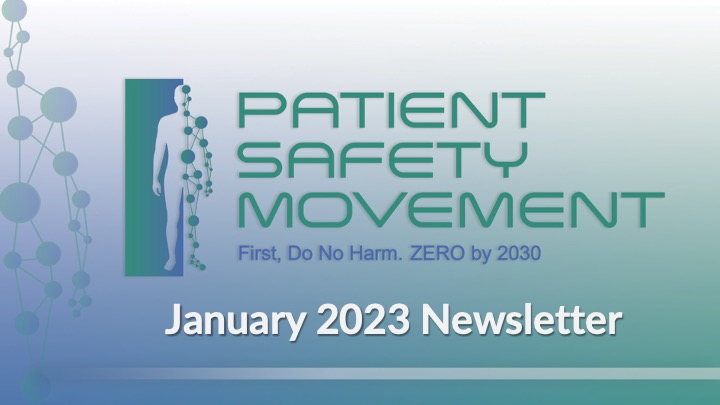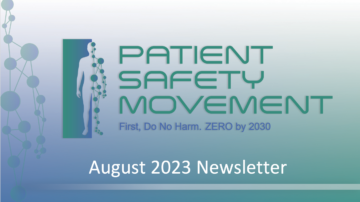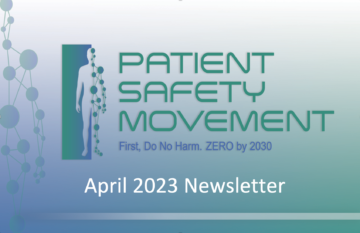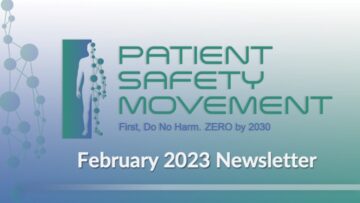DOCTOR DELIVERS LETHAL EPIDURAL AT
BROOKLYN HOSPITAL
An article last week in The New York Times told the story of an anesthesiologist at a Brooklyn public hospital, with a history of making life-threatening errors in administering epidurals, who made a fatal mistake in July 2020. A state medical review board later found in that tragic instance that Sha-Asia Semple, a pregnant 26-year-old woman in labor at Woodhull Medical Center, had the catheter that delivered the anesthesia threaded more than 13 inches into her lower back rather than the proper length of about four inches. The doctor then administered a full dose of anesthesia without waiting to see how Ms. Semple responded to a small test dose, according to the state board records. The anesthesia went into her cerebrospinal fluid and circulated around her central nervous system, causing Ms. Semple to stop breathing. The baby fortunately survived. This anesthesiologist has been stripped of his medical license.
Her passing came just weeks after George Floyd’s murder. In New York City, Black women like Ms. Semple are nine times more likely to die of pregnancy-related complications than white women, an even greater disparity than exists nationally. The hospital says that it has since strengthened its review of serious mistakes and adverse outcomes, and the city’s elected officials have initiated policies to improve maternal health, particularly for Black women, in recent months.
SAVE THE DATE – 2023 SUMMIT

NATIONAL PHARMACIST DAY
Jerika T. Lam, PharmD, offers unique insights on patient safety from a pharmacist’s perspective. As someone who works in a clinic that serves marginalized and underserved communities, she describes the important role pharmacists can play on a healthcare team alongside doctors and nurses to ensure patients get the appropriate medications with minimal drug interactions. Lam is an Associate Professor at Chapman University, School of Pharmacy.
NATIONAL BLOOD DONOR MONTH

Blood is a precious commodity, especially so in January when the holidays, inclement weather, and cold and flu season significantly slow down the pace of blood donations and blood drives, resulting in critical blood shortages.
According to the Red Cross, this year’s winter weather has led to the cancellation of more than 300 Red Cross blood drives in the Eastern and Midwestern states, leaving 9,000 potential donations uncollected. The nonprofit blood service provider Vitalant is reporting that over 900 hospitals across the nation are at the lowest blood supply levels in over a year. This year’s weather-related “blood emergency” is compounding the 50% reduction in business-hosted blood drives caused by the shift to remote work over the past couple of years.
Since donated blood must be used within 42 days, the need for donations of all blood types is constant, and unfortunately, supply often does not keep up with the demand. Each year, roughly 4.5 million Americans will need a blood transfusion.
Typically costing the donor little more than an hour of their time, a blood donation is one of the most altruistic gifts an individual can give to others in need. One unit of donated blood can be separated into individual components (red blood cells, plasma, platelets) that could potentially save multiple lives. Donated blood supports local hospitals and communities in truly lifesaving and rewarding ways.
Healthcare professionals can also do their part to preserve this valuable resource by having evidence-based Patient Blood Management (PBM) guidelines in place. PBM is based on four pillars:
- Optimization of the patient’s endogenous red cell mass
- Minimization of bleeding and blood loss
- Harnessing and optimizing the patient-specific physiological tolerance of anemia, including adopting more restrictive transfusion thresholds
- Patient-centered decision-making
These guidelines systematically reduce the impact of three major contributors to negative outcomes: anemia, blood loss, and transfusion.
BLOOD MANAGEMENT
Dr. Carolyn Burns explains the importance of the Four Pillars of Patient Blood Management—managing anemia, optimizing homeostasis, using non-transfusion alternatives to support the patient’s own blood health, and empowering patient-centered decision-making—to improve patient safety. Dr. Burns is President of the Society for the Advancement of Patient Blood Management and Chief Medical Officer and Co-Founder of Collaborative Clinical Consultants, LLC.
NEJM STUDY ON ADVERSE EVENT FREQUENCY

A new study published by the New England Journal of Medicine identified adverse events in nearly one in four admissions among a random sample of admissions from 11 Massachusetts hospitals in 2018. The study assessed the frequency, preventability, and severity of patient harm in this retrospective cohort.
Out of 2,809 admissions, the researchers identified at least one adverse event in 23.6%. Among 978 adverse events, 222 (22.7%) were judged preventable, and 316 (32.3%) were rated serious or higher (where the harm resulted in substantial intervention or prolonged recovery). Thus, the study determined a preventable adverse event occurred in 191 (6.8%) of all admissions reviewed, and a preventable adverse event with a severity level of serious or higher occurred in 29 (1.0%). Of the seven resulting deaths, one was deemed preventable. Adverse drug events accounted for 39.0% of all events (the most common), followed by surgical or other procedural events (30.4%), patient-care events associated with nursing care, including falls and pressure ulcers (15.0%), and healthcare-associated infections (11.9%).
With approximately one fourth of the adverse events being preventable, the study’s authors concluded that the findings underscore the importance of patient safety and the need for continuing improvement.
NBC NEWS — PATIENT STORY
Earlier this month, NBC News reached out to us for a patient story referral to highlight in their news feature on the New England Journal of Medicine study that showed nearly 25% of inpatients experience adverse events in hospitals. We connected the reporter to Lenore Alexander, who tragically lost her 11-year-old daughter, Leah, to a preventable medical error following a routine surgery. We are grateful to Lenore for sharing her story on national TV and hope that the greater awareness this prominent news coverage generates leads to concerted efforts at hospitals to prevent similar tragic outcomes.
LETTER FROM CEO

The article in The New York Times last week about the death of a mother following what the article noted as a “botched epidural” was incredibly heartbreaking. The life of the mom was cut short, the child will never be able to know her mother, and the father is left to deal with the tragedy as he takes on the responsibility of both mother and father.
If the facts in the article are correct, this case was pure incompetence. There should have been accountability some time ago since this doctor was noted as having harmed six previous patients. The medical staff, hospital executives, and state medical boards need to act swiftly the first time they see incompetency, because in our profession, a person’s life is at stake.
This case is a contrast to the story of Radonda Voight, the Vanderbilt nurse who found herself in court facing criminal homicide charges last year. In her case, the “system” was at fault, and she ended up in an impossible situation. The judge in her case recognized this and managed the case very appropriately for the circumstances.
“Just Culture” is a system of shared accountability in which organizations are accountable for the systems they have designed. Sidney Decker, who authored the book Just Culture—Balancing Safety and Accountability, stated, “We must ask WHAT is responsible, not WHO is responsible. The aim of safety work is not to judge people for not doing things safely but to try to understand why it made sense for people to do what they did—against the background of their engineered and psychological work environment.
For a safer healthcare system, we need to address the “systems” in place that let preventable patient harm happen. The case in The New York Times article was an example of persistent incompetence by a provider who should have been stopped much sooner—before five additional patients were harmed! All of us in healthcare must protect our patients and keep them safe from poor care! That means all of us must ensure good safe care in our hospitals—clinical staff, executives, and medical boards must provide oversight and stop incompetence.
Yours,

Michael A.E. Ramsay, MD, FRCA, Chief Executive Officer, PSMF
IN THE NEWS
- A 37-year-old Canadian mother died after waiting for 7 hours for treatment in a Nova Scotia ER waiting room, as reported in People. She went in with severe stomach pain, repeatedly telling her husband she thought she was dying.
- Two recent reports are spotlighting the rising risks to patient safety caused by an increase in the severity of cybersecurity attacks on healthcare organizations, according to SC Media.
- Researchers found that an evidence-based fall intervention program could generate annual cost savings of $1.82 billion if implemented on a national scale, according to healthleaders.
- The New York Times recently wrote about an anesthesiologist at a public hospital in Brooklyn who made numerous life-threatening errors in administering epidurals, one of which proved fatal. The story underscores racial disparities in maternal deaths in the US.
- Nurse.com outlined the importance of setting and achieving patient safety goals in light of higher rates of malpractice suits involving nurses and preventable patient safety events.

DONOR TESTIMONIALS — WHY I GIVE


DONATE TODAY
GOVERNANCE BOARD
Mike Durkin, OBE, MBBS, FRCA, FRCP, DSC, Chairman of PSMF, Senior advisor on Patient Safety Policy and Leadership, Institute of Global Health Innovation, Imperial College London
Steven J. Barker, PhD, MD, Chief Science Officer, Masimo Corporation, Professor Emeritus of Anesthesiology, University of Arizona Health Sciences
Robin Betts, RN, CPHQ, MBA-HA, Vice Chair, PSMF, Vice President, Safety Quality & Regulatory Services, Kaiser Foundation Hospitals and Health Plan, Kaiser Permanente Northern California
Alicia Cole, Patient Safety Consultant
Javier T. Davila, MD, MFS, Ambassador, PSMF in Mexico, Former Medical Director, Mexican Social Security Institute, Head of Medical Education, Research and Health Public Policy
Omar Ishrak, PhD, Executive Chairman and Chairman of the Board of Directors, Medtronic, Chairman of the Board of Directors, Intel
Philip D. Lumb, MB, BS, MD, MCCM, FCCP, Professor of Anesthesiology and Trauma Surgery, Keck School of Medicine at University of Southern California
Joe Kiani, Founder and Immediate Past Chairman of PSMF, Founder, Chairman & CEO of Masimo
Sarah Kiani, Director, Masimo Foundation for Ethics, Innovation, and Competition
David B. Mayer, MD, Executive Director, MedStar Institute for Quality and Safety
Jannicke Mellin-Olsen, MD, DPH, Past President, World Federation of Societies of Anesthesiologists
Jim Messina, CEO, The Messina Group
Najmedin Meshkati, Ph.D, MS, Professor of Civil/Environmental Engineering, University of Southern California
Charlie Miceli, CPM, Treasurer, PSMF, Chief Supply Chain Officer, Network VP of University of Vermont Health Network
Michael A.E. Ramsay, MD, FRCA, Chief Executive Officer, PSMF
Abbasseh Towfigh, MPD, Executive Director and Secretary, Ayeneh Foundation
Vonda Vaden Bates, Patient Advocate, CEO, 10th Dot
OUR STORY

In 2012, Joe Kiani founded the nonprofit Patient Safety Movement Foundation (PSMF) to eliminate preventable medical errors in hospitals. His team worked with patient safety experts from around the world to create Actionable Evidence-Based Practices (AEBP) that address the top challenges. The AEBP is available without charge to hospitals online.
Hospitals are encouraged to make a formal commitment to ZERO preventable deaths, and healthcare technology companies are asked to sign the Open Data Pledge to share their data so that predictive algorithms that can identify errors before they become fatal can be developed. The Foundation’s annual World Patient Safety, Science & Technology Summit brings together all stakeholders, including patients, healthcare providers, medical technology companies, government employers, and private payers. The PSMF was established through the support of the Masimo Foundation for Ethics, Innovation, and Competition in Healthcare. For more information, please visit psmf.org.
![]()









